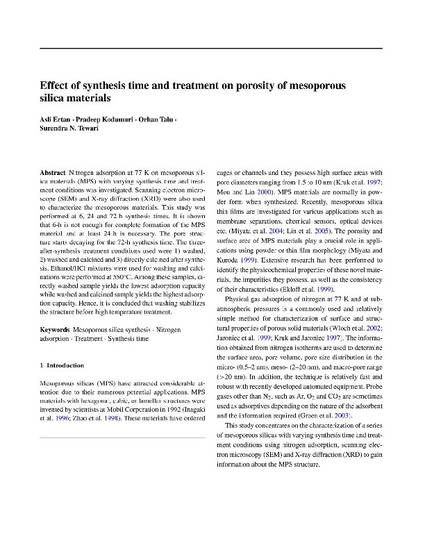
Nitrogen adsorption at 77 K on mesoporous silica materials (MPS) with varying synthesis time and treatment conditions was investigated. Scanning electron microscope (SEM) and X-ray diffraction (XRD) were also used to characterize the mesoporous materials. This study was performed at 6, 24 and 72-h synthesis times. It is shown that 6-h is not enough for complete formation of the MPS material and at least 24-h is necessary. The pore structure starts decaying for the 72-h synthesis time. The three-after-synthesis treatment conditions used were 1) washed, 2) washed and calcined and 3) directly calcined after synthesis. Ethanol/HCl mixtures were used for washing and calcinations were performed at 550°C. Among these samples, directly washed sample yields the lowest adsorption capacity while washed and calcined sample yields the highest adsorption capacity. Hence, it is concluded that washing stabilizes the structure before high temperature treatment.

The Department of Energy provided partial financial support for this research (DOE, contract number: DE-FC36-04ER14007).